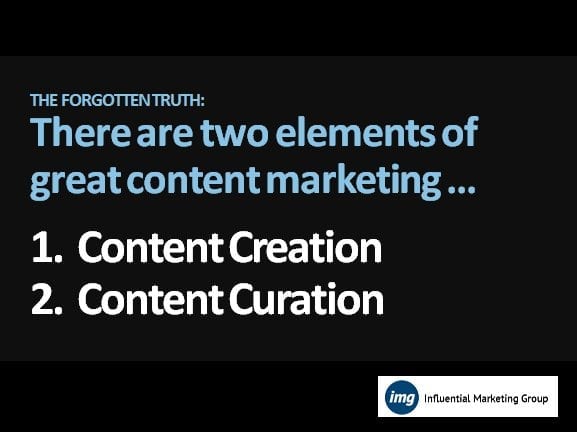There is a creation myth that we often hear when it comes to content marketing. It tells us that in order to provide value with the content we produce, we need to create answers to questions. We need to create continually updated events, articles, videos, or images. Create, create, create. But creation is hard. Not everyone is a great writer. No one is born with the ability for powerful photographic composition. And despite more and more tools making previously complex tasks like video editing easier, simplicity of creation doesn’t lead to proliferation of talent.
Just because you can easily create content doesn’t mean your content will be good.
4 Benefits of Great Content:
- Answer common questions
- Demonstrate your expertise
- Make you more findable
- Inspire more sharing
There is a predictable downside to more content creation online – and it the corresponding increase in noise that it creates. More than ever before, it has become impossible to separate the great content from the bad, because it is presented in a waterfall format with the reader sitting hopeless underneath. Even if you did have the right talent, just creating better content doesn’t always solve this noise problem because people can’t always find it.
What if there was a way to use content for marketing that didn’t require you to become a writer, actor, director or producer overnight – and could also solve the problem of rising above the noise? There is already a solution for both – and involves the forgotten truth that there are actually two sides to great content marketing: creation AND curation.
I have written before about the 5 models for content curation (aggregation, elevation, distillation, mashups, chronology) and the opportunity they offer to make sense of what is available on the web and bring more meaning to that content in multiple ways.
A Definition of Content Curation:
Content Curation is a term that describes the act of finding, grouping, organizing, or sharing the best and most relevant content on a specific issue.
Here is the best part about content curation, though. It doesn’t require you to be a writer, or a filmmaker, or an on-screen commentator. Curation is inherently behind the scenes. What it does require, though, is expertise. It requires the ability to think and collect. They are different skills sets than creation, but in a business environment – it is far more likely that you will find someone with deep subject matter expertise in a particular industry, topic or issue. They may not necessarily be gifted writers or documentarians, but their expertise is their strength and though creating original content may be an uphill battle – curating highly valuable content available elsewhere can be a much more realistic goal.
The bottom line is, great content marketing doesn’t always require creating it from scratch. Sometimes expertise means helping shine a spotlight on what matters instead of creating it yourself.









WE RECENTLY REMOVED COMMENTING - LEARN WHY HERE >